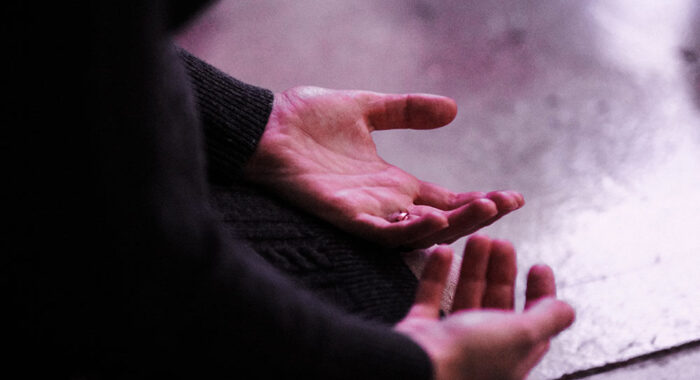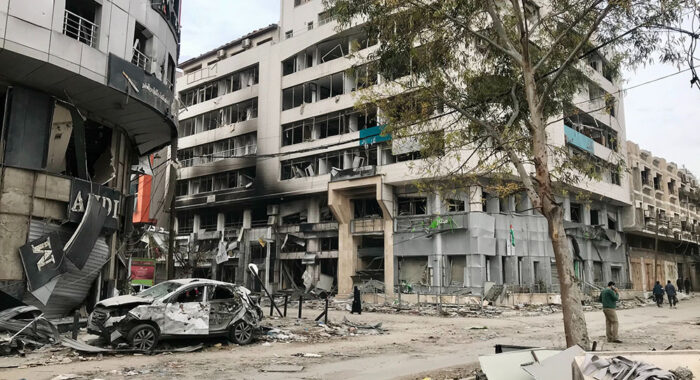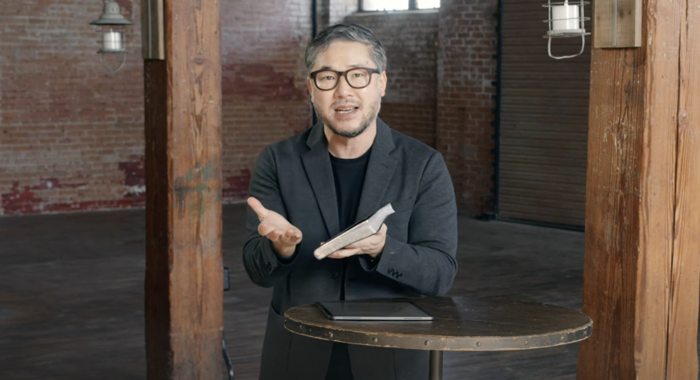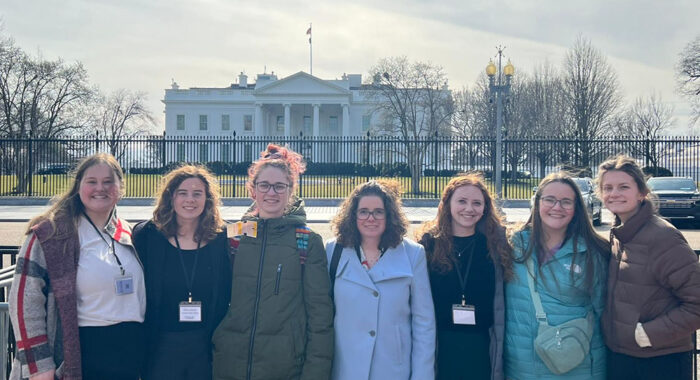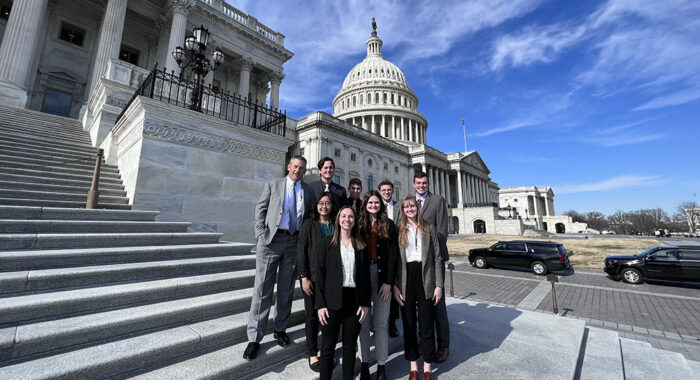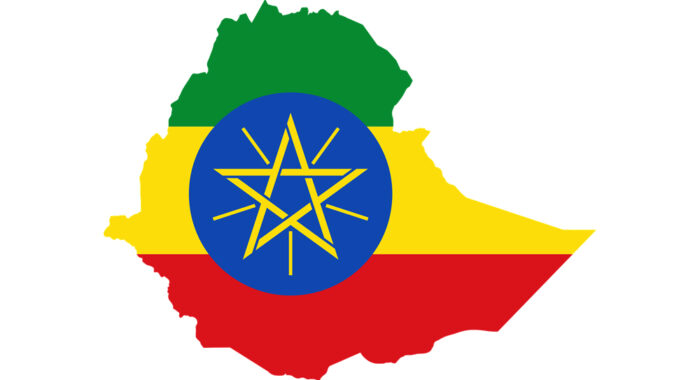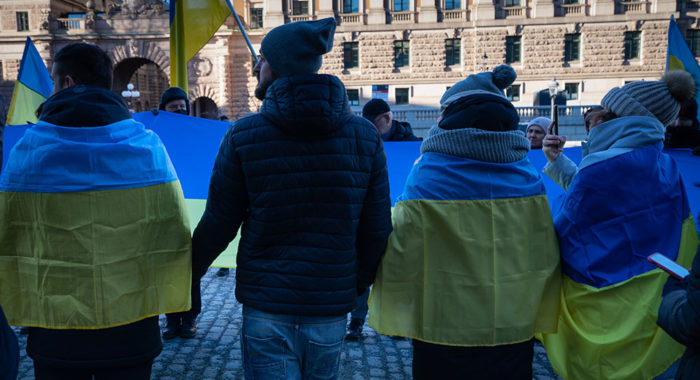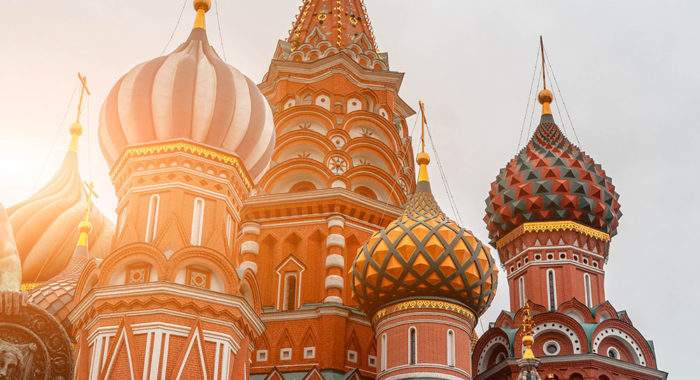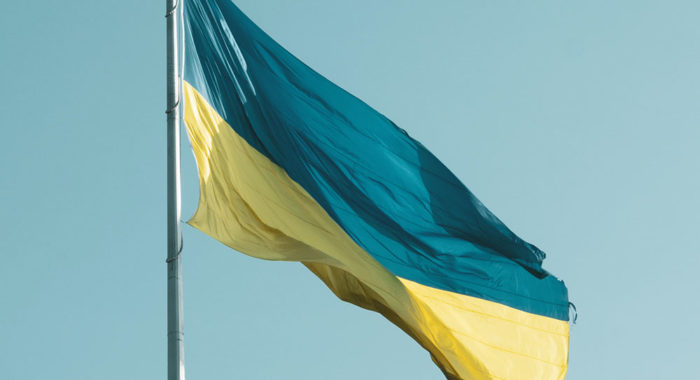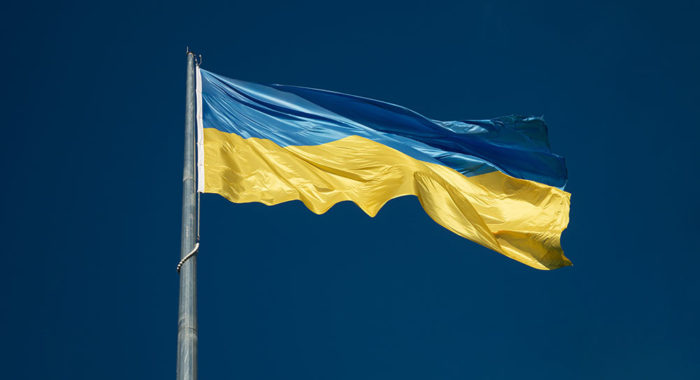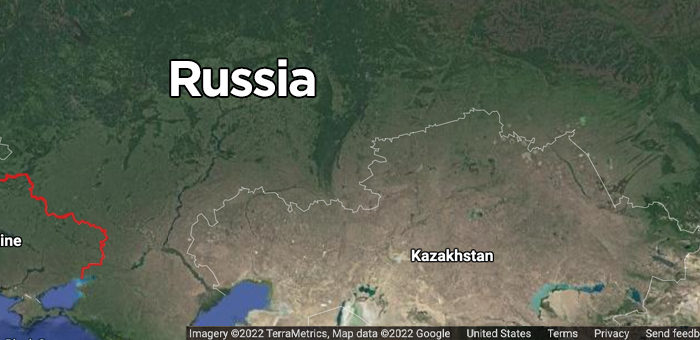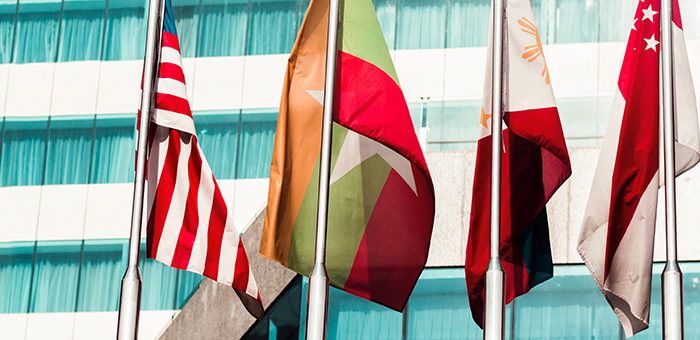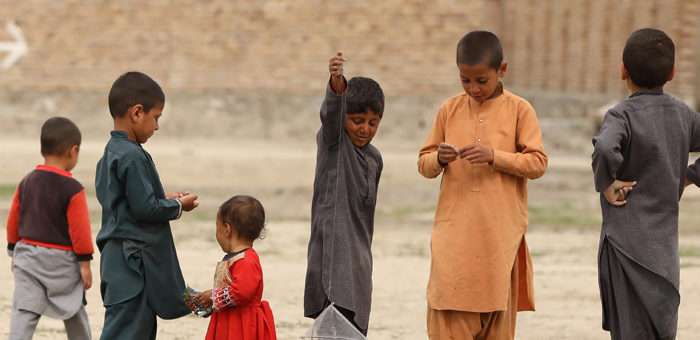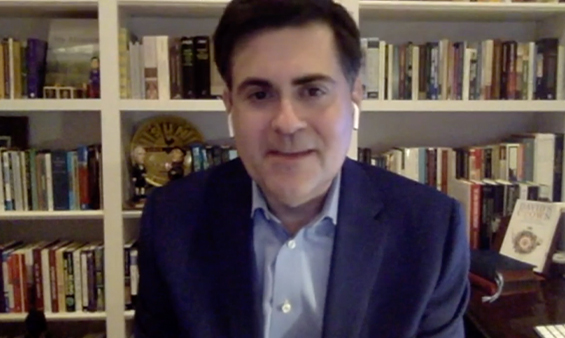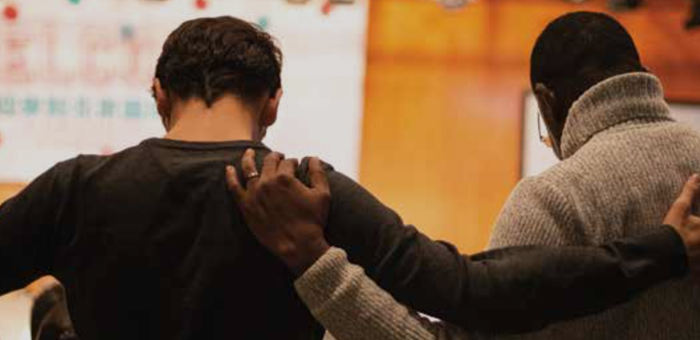
2002 Second Statement of Conscience Concerning Worldwide Religious Persecution with Special Examination of Sudan and North Korea
“God created man in his own image.”
Genesis 1:27-28
“Remember those in prison as if you were their fellow prisoners and those who are mistreated as if you yourselves were suffering.”
Hebrews 13:3
“Jesus replied: ‘Love the Lord your God with all your heart and with all your soul and with all your mind.’ This is the first and greatest commandment. And the second is like it: ‘Love your neighbor as yourself.’ All the Law and the Prophets hang on these two commandments.”
Matthew 22:37–40
“Rescue those being led away to death; hold back those staggering toward slaughter. If you say, ‘But we knew nothing about this,’ does not he who weighs the heart perceive it? Does not he who guards your life know it? Will he not repay each person according to what he has done?”
Proverbs 24:11–12
“Carry each other’s burdens, and in this way you will fulfill the law of Christ.”
Galatians 6:2
“If I am not for myself, then who will be for me? And if I am only for myself, then what am I? And if not now, when?”
Rabbi Hillel
Pirkei Avot (Ethics of the Fathers)
Foreword
On January 23, 1996, the National Association of Evangelicals issued its first Statement of Conscience on religious persecution. This was done when little public attention was paid or concern offered to hundreds of millions of worshippers throughout the world who were subjected to extreme persecution because of their faith. The Statement called on all Americans “to work tirelessly to bring about action by our government to curb worldwide religious persecution.”
And so many did.
By the grace of God and through the committed efforts and prayers of Americans of all faiths, joined by many who profess no religious faith, matters have changed dramatically during the past few years:
- A grassroots prairie fire of concern for persecuted believers, fueled by denominational newsletters and such events as the International Day of Prayer for the Persecuted Church, sponsored by World Evangelical Alliance, has grown in size and intensity.
- The President of the United States and senior administration figures now regularly speak out on behalf of international religious freedom; Congressional hearings on the fate of victims of religious persecution, once rare, are now increasingly common; and national media coverage of religious persecution, once rare in the extreme, is now increasingly attentive and less skeptical of the just claims of faith-based victims.
- In an historic step, Congress enacted the International Religious Freedom Act, one of the most sweeping and systematic human rights laws ever enacted – an act which, in many ways and for the first time, makes the promotion of worldwide religious freedom a basic priority of United States foreign policy.
Facts
Despite heightened attention to the rights of believers, anti-religious and anti-Christian persecution continues in many parts of the world. While persecuted believers now know, more than ever, that their fellow believers and others hear their cries and prayers, the tragic fact is that religious persecution has recently grown worse in many of the world’s most repressive countries.
This is so because what was said in the 1996 Statement of Conscience remains equally true today:
Persons of evil intent rightly understand that the survival of churches undermines their aims, because these churches affirm the human dignity of all persons created in God’s image and acknowledge their ultimate accountability to a transcendent God.
For this reason, patterns of religious persecution cited in the 1996 Statement are still true for many men and women of faith. These are but a few modes of persecution that continue to be visited, in savage particular, on many of our brothers and sisters in Christ:
- Imprisonment and torture of persons for simply attending Christian worship services or Bible studies.
- Literal sale into slavery of Christian children abducted by government forces.
- Refusal to distribute food to Christians in famine-stricken areas unless they renounce their faith.
- Wide dissemination, often with government support, of scurrilously hateful and deliberately provocative anti-Christian tapes, books and tracts.
- Prosecution, torture and murder of Christian converts and their children and grandchildren.
- Destruction of churches and Bibles.
- Targeted assassination of religious leaders
A Strategic Plan of Action
We have significantly achieved the goal of searing the consciences of millions and of focusing public attention on the plight of persecuted believers — a critical and necessary first step. Such progress, however, is clearly insufficient to satisfy our obligations of conscience.
If we are to help maximize the freedoms of all persecuted believers throughout the world, we believe that our immediate and critical need is to achieve major, lasting and structural successes in countries where, in the words of the International Religious Freedom Act, “systematic, ongoing and egregious violations of religious freedom” now take place. Focusing on the problems of such countries, and achieving clear victories on behalf of their persecuted communities of faith, will also have powerful and positive ripple effects in all countries where religious persecution takes place.
In crafting a strategic plan of action, we take guidance from the International Religious Freedom Act’s mandate that attention be paid wherever religious persecution occurs, but that the Secretary of State must also designate persecuting Countries of Particular Concern for heightened scrutiny and action. Only six countries have been designated as such countries under the Act in the past year:
Burma, China, Iran, Iraq, North Korea and Sudan.
We believe that this Statement of Conscience should parallel the call of the May 1, 2002 Second Summit for Christian Leaders on Religious Persecution to engage in a “special examination” of two of those countries: North Korea and Sudan. In doing so, we do not, must not, dare never discriminate between the cries and prayers of persecuted believers wherever they suffer for the exercise of their faith.
- We vow never to commit the sin of silence whenever we learn of religious persecution visited against faith communities like those, in Bosnia, that do not share our witness of Christ.
- We vow never to commit the sin of silence whenever we learn of bombings of houses of worship and random killings of believers like those visited this year against Christian communities in Indonesia and Pakistan and against synagogues in France and Tunisia.
- We vow never to commit the sin of silence by failing to condemn, and failing to become determined and prayerful agents for change in countries such as Burma, Iran, Iraq, Laos, Saudi Arabia and Turkmenistan, identified by the U.S. Commission on International Religious Freedom as present and consistent practitioners systematic religious persecution.
- We vow, with special resolve, never to commit the sin of silence over the torment of ministers and practitioners of many faiths, and the torment of tens of millions of house church Christians, all now subject to pervasive persecution by a regime in China that believes its survival dependent on suppressing the call of Providence to a vast population that now strains to hear, preach and practice the Word of God.
Some of the most vicious persecution is in remnant communist countries and radical Islamic states. As for communism, we know well its nature. As for radical Islam, we believe it is in the interest of Muslims and Islam to protect Christian believers from assault by radicals. When the state tolerates religious freedom, it sets the standard for all to learn to tolerate one another’s beliefs, which can then bring civil peace and order to a society.
“Special Attention” to North Korea and Sudan
We note first that in paying the special attention to North Korea and Sudan, as called for by the May 1, 2002 Summit Meeting, we pay focused attention to China as well. Through its operation of oilfields in Sudan — where the most brutal suppression of animist practice and Christian faith takes place — China has become the principal financier of a regime that openly boasts of using its increased oil revenues to wage jihad against those in Sudan who seek political and religious freedom. Likewise, by brutally returning to torture and death the refugees and Christian victims who by the grace of God manage to escape from North Korea, China’s rulers have become the prime abettors and protectors of the regime in North Korea.
Those who rule in China should know, and by this Statement of Conscience we solemnly vow, that they will be held accountable for their support of Sudan and North Korea, and will be held accountable for their brutal persecutions of the House Church, the unregistered Church, and other religious and spiritual communities within China.
The “special attention” focus this Statement pays to Sudan and North Korea comes first from this fact: Horrible as may be the torments now suffered by vulnerable believers throughout the world, those suffered by faith communities of Sudan and North Korea may be more brutal, more systematic, more deliberate, more implacable and more purely genocidal than those taking place anywhere in the world today:
- In its past two annual reports the U.S. Commission on International Religious Freedom found the government of Sudan to be “the world’s most violent abuser of the right to freedom of religion and belief.”
- The Commission described the people of North Korea as “perhaps the least free on earth, barely surviving under a totalitarian regime [where] religious freedom does not exist,” and described a country in which, despite massive starvation, “the deprivation of the human spirit [is] even greater.”
- In his major address on religious persecution, given on May 3 to the American Jewish Committee, the President spoke of the deliberate policies of persecution, enslavement and starvation practiced by the government of Sudan against Christian and animist communities, and rightly described the government’s conduct as “monstrous.”
- In his 2002 State of the Union address, President George W. Bush identified North Korea as one of three countries constituting the world’s “axis of evil” – a designation based both on the regime’s weapons of mass destruction programs and its brutal treatment of its own people – a designation the President further summarized when, during his recent visit to South Korea, he described the current plight of the people of North Korea as “starving and hopeless.”
- The genocidal policies of the government of Sudan against its Christian and animist minorities have increased in intensity during the recent past by reason of massive oil revenues that the regime has used to purchase sophisticated military equipment.
- Streams of defectors from North Korea to China have recently swelled, and repatriated refugees are generally given seven-year detention camp sentences upon a showing of contact with Christians in China or elsewhere, while repatriated Christians suspected of sharing their faith with others generally receive death sentences.
Despite the above, voices from within and outside the U.S. government have opposed the President’s pariah characterizations of Sudan and North Korea, and have sought “normalized” relations with those regimes that would greatly legitimize and empower them, and greatly dispirit those that they persecute.
Such voices have ironically sought to use events of September 11 as a basis for subordinating concerns about human rights and religious persecution in Sudan, in the tragically misguided hope that the regime can be made an anti-terrorism coalition partner of the United States.
Similar claims have been made for ignoring the President’s “axis of evil” characterization of North Korea, abetted by such advocates as South Korea’s chief economic advisor who recently described the government’s “main objective” as to “make sure North Korea does not collapse [because] we know it will mean a huge cost to South Korea.”
What then should we as Christians do for persecuted believers in Sudan and North Korea – knowing as we do that success in bringing a “just peace” to Sudan and ending a reign of terror fostered by the North Korean regime will send powerful signals to all tyrants who wish to practice religious persecution?
First and critically, we believe it urgent to support the President in his brave and proper characterizations of the nature and conduct of the governments of Sudan and North Korea. Calling the conduct of the Sudan government “monstrous” and describing the government of North Korea as “evil” holds open the same prospect for spiritual, political and economic freedom as was promoted by President Reagan when, speaking before the National Association of Evangelicals, he justly described the former Soviet Union as an “evil empire.”
Next, we strongly support the Sudan and North Korea policy recommendations issued by the U.S. Commission on International Religious Freedom.
In the case of Sudan, we will, in particular:
- Work for immediate enactment of the Sudan Peace Act; and
- Insist that the United States government make clear to the regime that its entitlement to oil revenues is conditional upon good faith participation in, and successful completion of, peace negotiations with rebel forces within the next six months.
In the case of North Korea, we will, in particular:
- Seek greatly expanded reporting by organizations advocating the protection of religious and other human rights and increased funding for the U.S. State Department’s Religious Freedom Office to meet its responsibilities under the International Religious Freedom Act.
- Urge the U.S. government to press the North Korean government to allow considerable expansion of both the amount of assistance and the numbers of providers, which should include nongovernmental faith-based organizations.
- Greatly expand U.S. foreign aid resources and greatly increase diplomatic priorities with China to ensure that North Korean escapees are humanely treated and protected from repatriation; and
- Make clear to the government of South Korea that U.S. foreign policy towards North Korea will never remain silent about, or otherwise subordinate, the priority need to advance human rights and religious freedom.
In the case of both countries we will, in particular, work for enactment of the Refugee Protection Act of 2001, legislation profoundly consistent with American traditions of opening our doors to genuine refugees of religious and political persecution.
Conclusion
In waging essential battles against forces of international terrorism, we believe it essential never to slacken our concern for brothers and sisters in Christ, or for others persecuted because of their religious beliefs. By this commitment, we categorically reject the premise that American national interests are served, or that American history permits, or that Christian witness abides agreements under which promises not to export terrorism by tyrannical states are exchanged for effective licenses to those states to engage in terrorism against faith communities, and other targets of their persecutions.
Thus, we believe that the war against terrorism is greatly strengthened by prayerful and determined efforts against the scourge of religious persecution.
We pray that our Heavenly Father will regard us as having been faithful to the pledges we made when our first Statement of Conscience was issued. As we offer thanks for successes achieved during the past few years in aiding persecuted believers, we also ask forgiveness as fallible men and women for the many times we have failed to heed their cries. But we now vow solemnly that the time has come to increase our efforts to achieve measurable freedom and just peace for those now suffering from religious persecution. And we pledge both to voice our prayers and to use the powers available to us by reason of God’s great gift of democracy to further the cause of religious freedom throughout the world.



 View All Updates
View All Updates 


